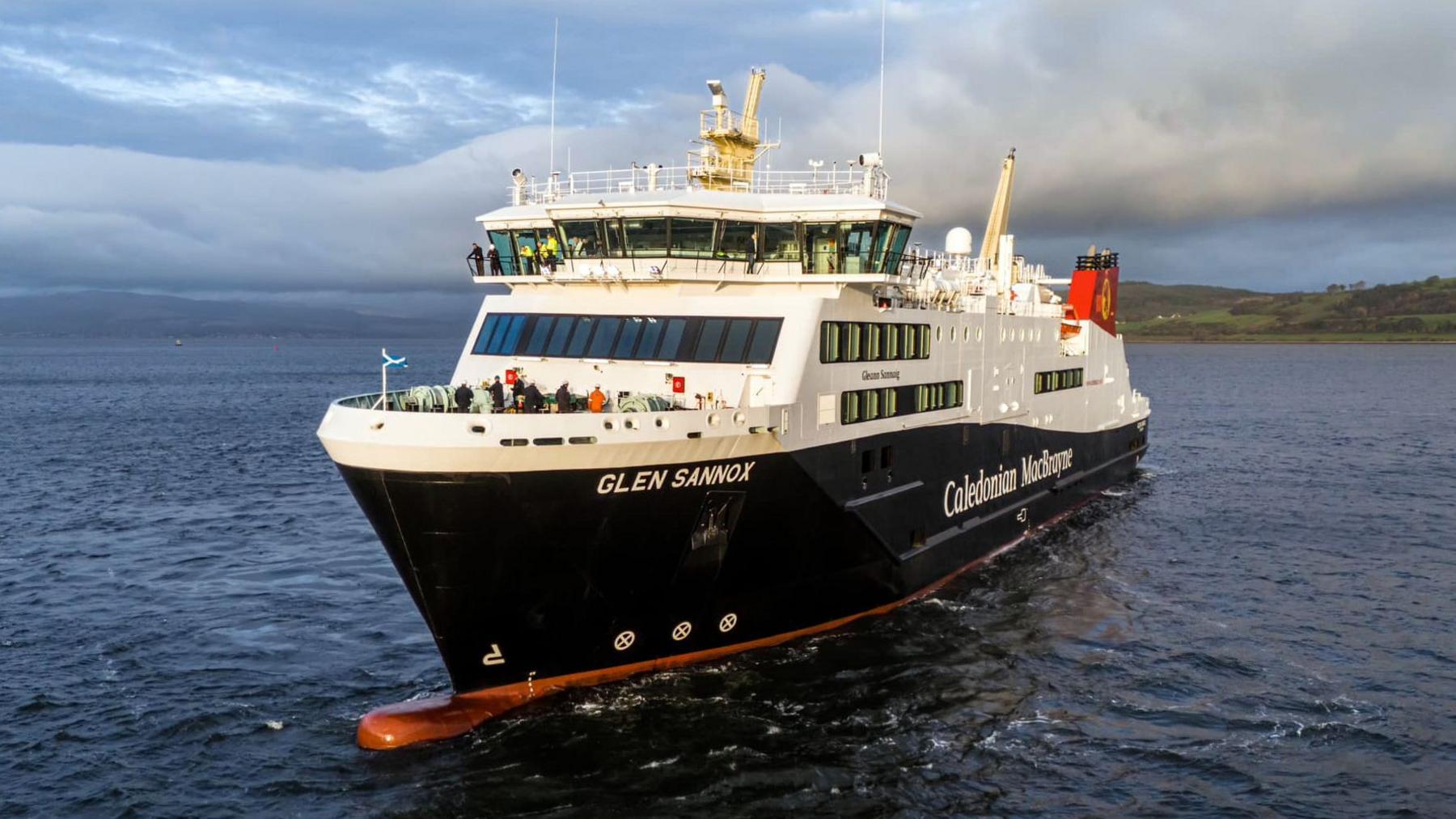Clyde shipyard survival depends on 'social value' recognition
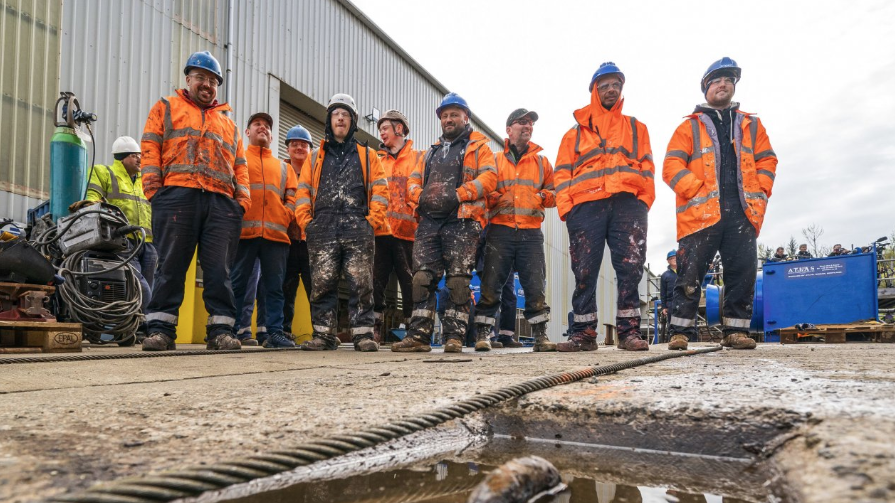
Shipbuilders at Ferguson Marine yard in Port Glasgow
- Published
The survival of Ferguson Marine, the last commercial shipyard on the River Clyde, hinges on a "step change" in government policy, insiders at the firm have warned.
Newly-published board minutes, external reveal concerns the state-owned firm will fail to secure a new CalMac ferry order in an open tender process unless "social value" is factored in.
A cross-party group of politicians and community leaders recently called for the direct award of a new contract to sustain the Port Glasgow firm beyond next summer.
Transport Scotland said it was still considering the legality of direct award, while ferries agency CMAL said it was unable to discuss its scoring process for future bids at this stage.
Social value scoring in bids involves a formal process for public sector buyers to evaluate how bids contribute to economic, environmental, and social well-being beyond just the core service or price.
But any social value scoring has to be used in a non-discriminatory way, so a tender involving overseas bidders must also give them a fair chance of picking up points.
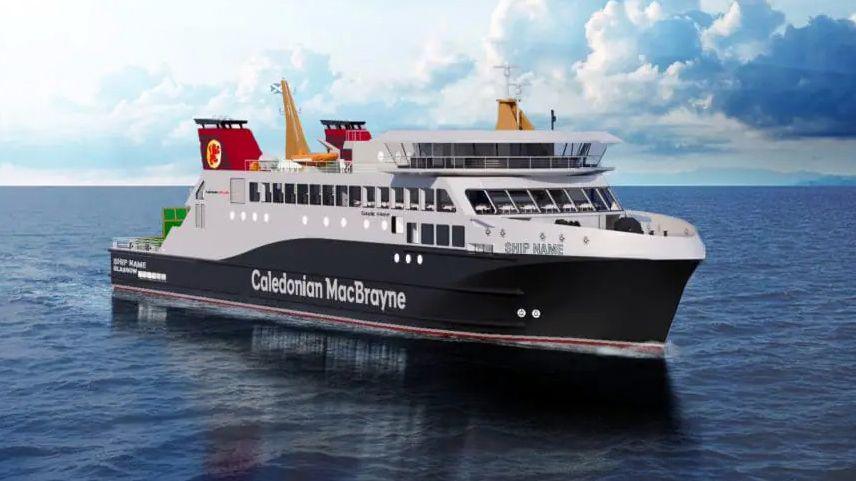
A concept drawing of the next CalMac ferry order, a replacement for MV Lord of the Isles, which campaigners want awarded to the Ferguson shipyard
In March, the Ferguson shipyard missed out on an important order for seven small CalMac vessels, similar to ones it had built on time and on budget in the past.
The Small Vessels Replacement Programme (SVRP) was widely seen as an ideal contract to restore the yard's reputation following delays and overspends building two much larger and complex ships, MV Glen Sannox and MV Glen Rosa.
While the Ferguson's bid fared well on quality, which made up 65% of the scoring, it was beaten on cost by the Polish shipyard Remontowa.
The firm's May board meeting minutes reveal fears that government-owned CMAL will use the same formula - without any social value scoring - for the next CalMac order, a replacement for MV Lord of the Isles, "making it unlikely for us to win".
BBC Scotland understands the firm is pressing ministers for a "step change" in procurement policy which would include scoring bids for social value.
What is social value?
UK-based commercial shipbuilders have long complained they are disadvantaged when competing against foreign firms, claiming their overseas rivals benefit from better state support as well as cheaper labour.
The head of the Society of Maritime Industries, Tom Chant, told MPs this summer that overseas firms typically undercut UK shipyards by 10-20% on costs.
An updated UK National Shipbuilding Strategy, external has called for a minimum 10% social value weighting in publicly-funded tenders which reduces the emphasis on headline contract costs and takes a wider view of value for money.
That might include assessing bids on how they support objectives such as fair work, skills development, sustainability and supporting the supply chain.
The new chief executive of Ferguson Marine, Graeme Thomson, has previously warned the firm will face serious challenges if it does not secure the work to build a replacement for MV Lord of the Isles.
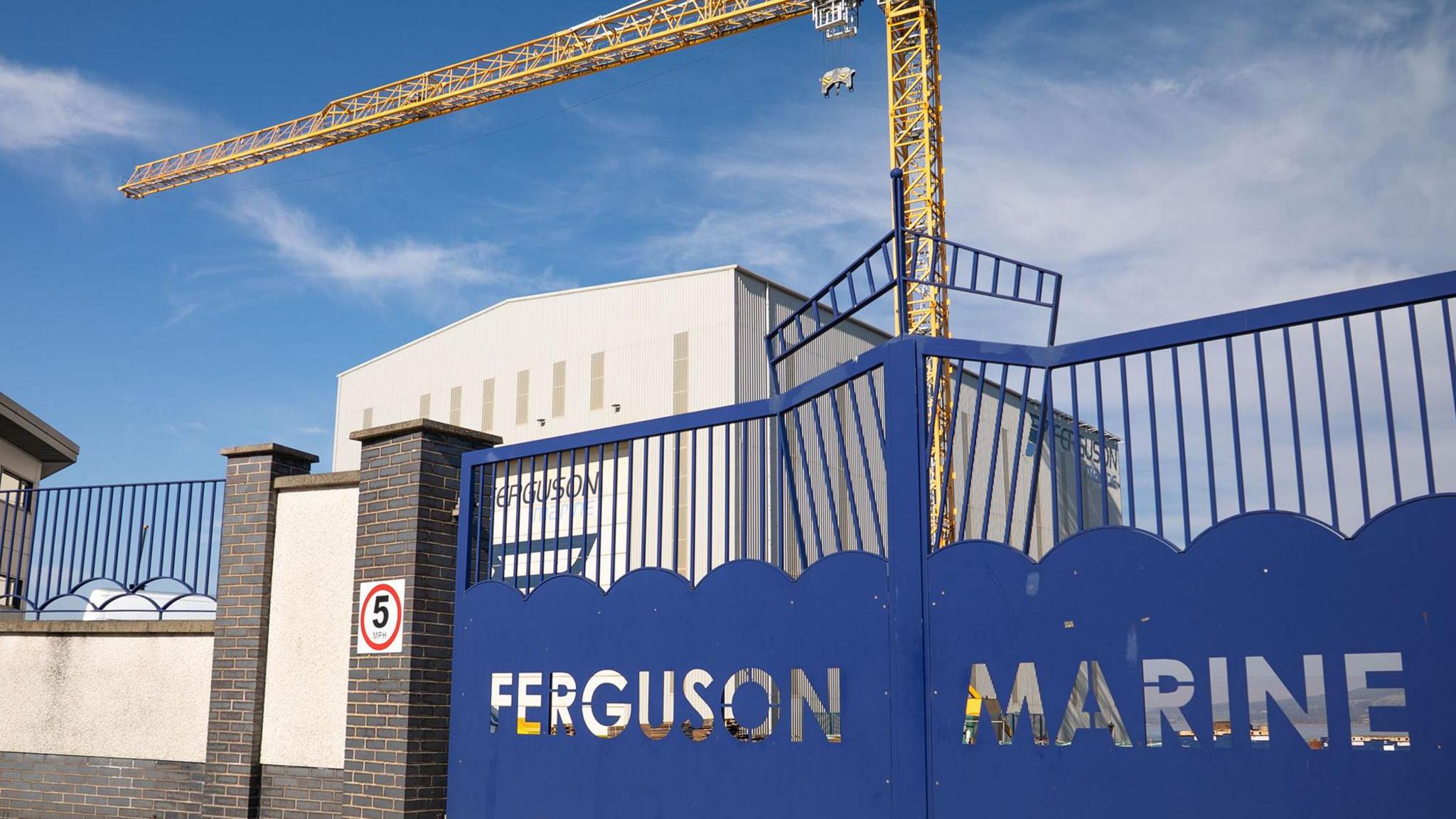
The Ferguson Marine shipyard employs about 300 workers including about 50 apprentices, a high proportion of the workforce
One of his first acts on taking up the role in May was to write to Transport Secretary Fiona Hyslop requesting a direct award of the contract. Failing that, the shipyard is pressing for social value scoring to be introduced into public procurement.
A forthcoming contract from the UK government for a new fisheries research ship is expected to score bids for both social value and UK content. Ferguson Marine is lobbying for a similar approach in Scotland.
A spokesperson for CMAL said it would be inappropriate to discuss details of the bid scoring method before the procurement is formally launched.
How can the Ferguson shipyard have a future?
- Published14 September
No 'social value' scores in CalMac ferries award
- Published8 April
A Transport Scotland spokesperson said: "Ministers consider vessel contracts at an appropriate time on a case-by-case basis to determine whether any might legally be open to direct award and also review potential community benefits.
"Under public procurement and subsidy control rules, direct award of public contracts is only possible in strictly limited circumstances.
"We are currently considering the business case and next steps in relation to the Lord of the Isles replacement and will confirm these in due course."

CMAL announced that the first steel had been cut in Poland for the new CalMac small ferries
The Polish firm Remontowa has described the CalMac small vessels contract, worth £147.5m to the shipbuilder, as the most important multi-ship order in its history.
On Thursday CMAL confirmed that steel cutting had now begun with delivery of the first all-electric vessel expected in 2027.
CMAL chief executive Kevin Hobbs, who attended the steel cutting ceremony in Gdansk, said: "These ferries will bring increased capacity and benefits of clean, fully-electric propulsion to island and rural communities."
The total value of the Scottish government investment in the first phase of the SVRP is £175m, including £15m of harbour improvements and £12.5m for CMAL's project management costs and other overheads.
Remontowa's commerce director Michał Jaguszewski said it was working closely with CMAL to ensure production followed a "strict timeline".
He added: "We are very satisfied with the progress made so far and look forward to continuing at pace."
The new ferries will serve routes including Colintraive - Rhubodach, Lochaline -Fishnish, Tarbert - Portavadie, Iona- Fionnphort, Sconser - Raasay, Tobermory - Kilchoan, and Tayinloan - Gigha.
- Published15 September
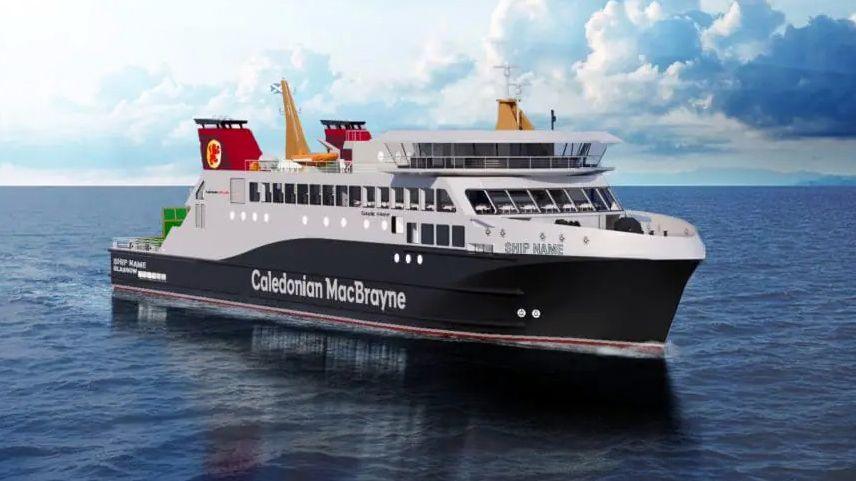
- Published14 September
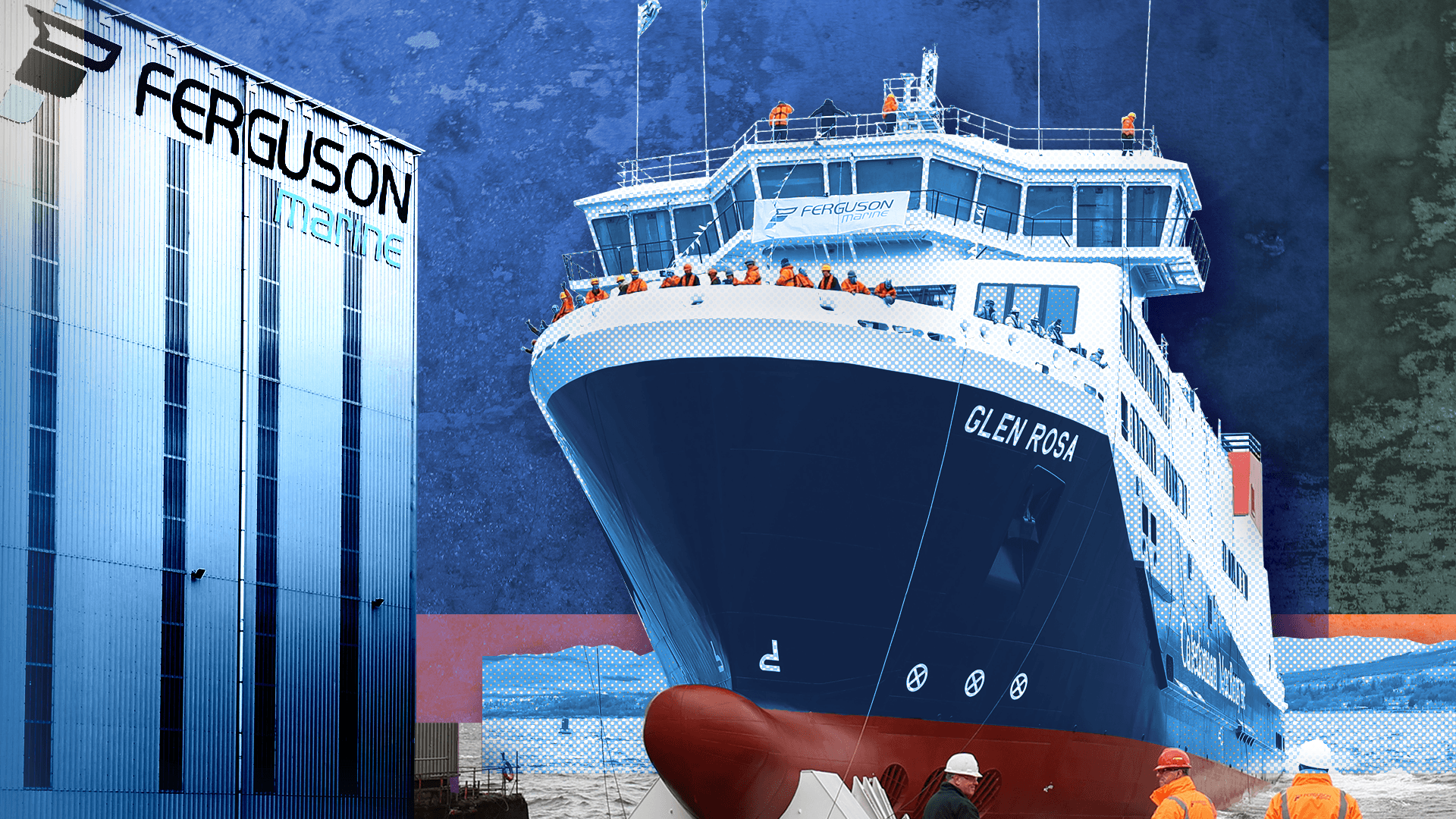
- Published8 April
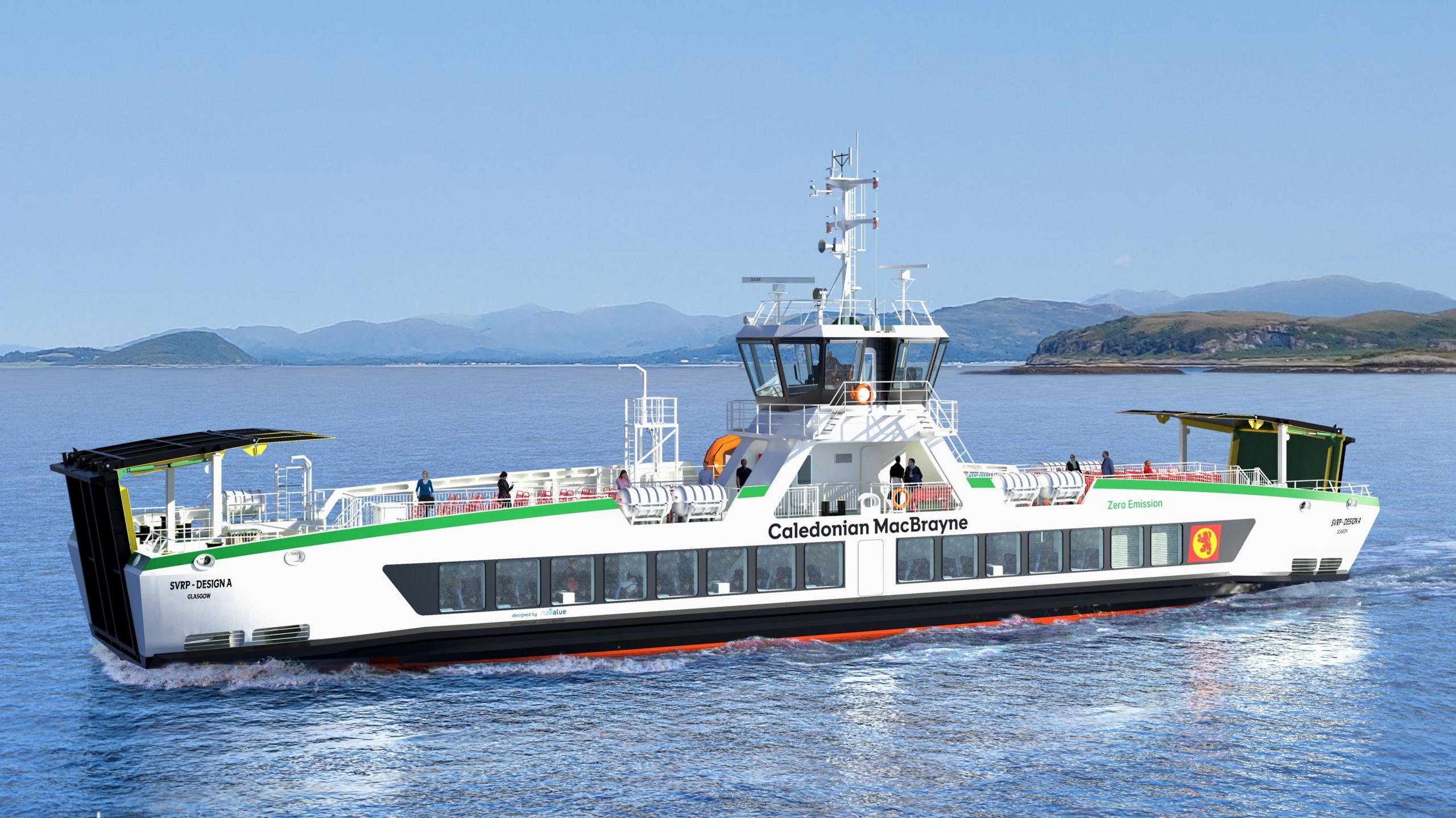
- Published13 January
